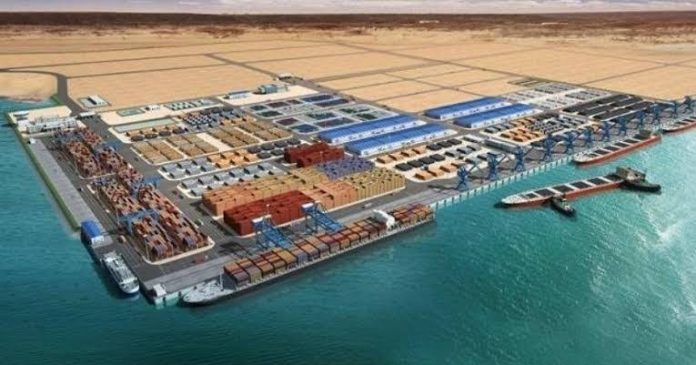Facebook Twitter Instagram Somali Magazine - People's Magazine
Somaliland has firmly rejected an attempt by Somalia’s federal government to offer the United States exclusive control over the strategic port and airbase in Berbera, escalating tensions between the self-declared republic and Mogadishu. The rejection follows the revelation of a letter from Somali President Hassan Sheikh Mohamud to U.S. President Donald Trump, dated March 16, in which he proposed handing over control of four key facilities—including Berbera’s port and airfield—to bolster American military and strategic engagement in the Horn of Africa.
Berbera lies along the vital Gulf of Aden, a key global shipping route. Since declaring independence in 1991 as Somalia descended into civil war, Somaliland has operated as a de facto state, complete with its own government, military, and institutions. Although no country has formally recognized its independence, it has maintained internal stability and forged international partnerships, including with the United Arab Emirates’ DP World, which currently runs the expanded Berbera port.
Somaliland’s Foreign Minister, Abdirahman Dahir Aden, denounced the Somali government’s move as a “desperate” attempt to remain relevant on the global stage. “There is nothing they can do to stop the upcoming recognition of Somaliland,” Aden posted on X, formerly known as Twitter. Speaking to Reuters, he added, “The USA is not stupid. They know who they need to deal with when it comes to Berbera port.”
The controversy comes at a time when optimism in Somaliland is growing. Many in the territory believe that Trump’s return to the U.S. presidency could lead to the long-awaited recognition of Somaliland as a sovereign nation. During his first term, Trump showed signs of recalibrating U.S. involvement in Somalia, scaling back military operations and reducing the U.S. footprint. That history has fed speculation that his administration might seek closer ties with more stable, strategically placed territories like Somaliland.
In his letter, President Mohamud proposed that the U.S. be given control of the Berbera and Balidogle airbases, as well as the ports of Berbera and Bosaso. He described the assets as “strategically positioned” and emphasized their value in countering global rivals, an apparent reference to growing Chinese and Russian influence in the region. The letter argued that exclusive U.S. access to these locations would help “prevent external competitors from establishing a presence in this critical corridor.”
But Mogadishu’s offer has triggered backlash not only from Somaliland but also from Puntland, the semi-autonomous region in northeastern Somalia where the port of Bosaso is located. Puntland authorities have yet to comment officially, but Somali media outlet Garowe Online reported that the offer may have been made without their consent—further straining already fragile relations between the federal government and regional states.
The airbase at Balidogle, northwest of Mogadishu, is already home to a contingent of U.S. troops who train Somali forces and conduct counterterrorism operations against al-Shabaab, the al-Qaeda-linked militant group that still controls large areas in southern and central Somalia.
This is not the first time Berbera has become the focal point of a geopolitical dispute. Just last year, tensions flared after Ethiopia signed a maritime deal with Somaliland to develop a port facility there. The Somali federal government called the agreement an “act of aggression,” underscoring its sensitivity about any recognition of Somaliland’s independence or authority.
Observers believe Somalia’s recent overture to the U.S. stems from fears that Trump’s return may mean less American support for Mogadishu. In December, the Somali government even signed a $600,000 deal with a major Washington lobbying firm to influence U.S. policy. But that effort may now be complicated by Somaliland’s growing diplomatic assertiveness and Washington’s need for stable, reliable partners in the region.
As U.S. strategic interest in the Horn of Africa intensifies, the standoff between Somalia and Somaliland over Berbera could redefine the regional balance of power.

